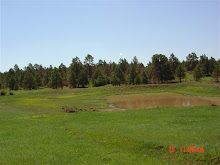When oil's gone, a mess remains
Living in a county that currently has no active gas wells, I see citizens (myself included), spending a great deal of time talking about the dangers posed by the drilling process. Since we don't have old abandoned wells and waste pits in our back yards, most of us don't think beyond the initial phases of drilling development. It is important to remember that natural gas wells do not produce forever. At some point, the developer will move on and probably leave a very big mess if there are not adequate regulations and enforcement in place.
When oil's gone, a mess remains
By JOE CARROLL Bloomberg News
Published: Sunday, April 18, 2010 at 1:00 a.m.
Bo Vavrusa was heaping dirt into the path of a wildfire on a Texas ranch in October 2007 when his tractor rammed an Exxon Mobil Corp. natural-gas pipe hidden in a thicket. Flames engulfed the tractor, burning his face, arms and hands as he fled.
"This isn't something the states are proud to advertise. It's the ugly side of the oil and gas business."– Philip Dellinger, Environmental Protection Agency
"I thought I was fixing to die," said Vavrusa, 28, who was earning $10 an hour to groom the ranch for quail and dove hunters.
Exxon, the biggest U.S. oil producer, has neglected this stretch of Texas since its oil fields began drying up in the 1970s, said Jerry Patterson, the state's General Land Office Commissioner. Now Patterson and other state officials are urging Texas lawmakers to follow the examples of California and Pennsylvania in cracking down on oilfield practices that have left leaking pipelines, wells and storage tanks.
Oozing chemical pits and Vavrusa's scarred skin are emblematic of a legacy Exxon has sought to keep buried in court, even as it gears up for a return to active exploration within miles of the ranch through its pending $29.3 billion acquisition of Fort Worth, Texas-based XTO Energy Inc.
Exxon's renewed focus on North America follows nationalist energy policies in Venezuela and Russia that reduced opportunities to profit abroad. It coincides with fresh scrutiny in the United States that is leading Congress to examine whether stricter drilling regulations are needed.
"This isn't something the states are proud to advertise," said Philip Dellinger, chief of the groundwater section in the Austin, Texas, office of the Environmental Protection Agency. "It's the ugly side of the oil and gas business." More>>>






0 comments:
Post a Comment